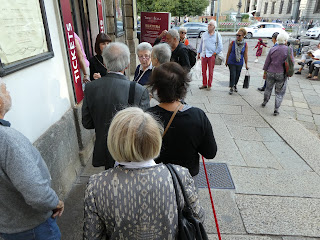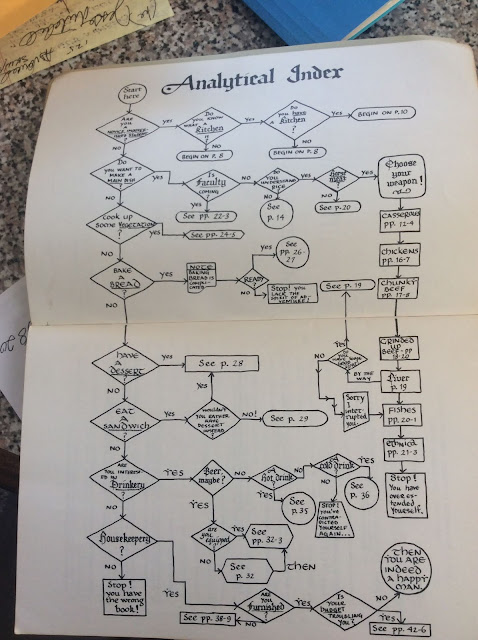Earlier this year we cruised from Tokyo to Vancouver with a couple of Russian ports on the itinerary.
The Captain just now announced the temperature of the Okhotsk Sea is 2 degrees centigrade (36F), the same temperature as the air. I saw a lone hardy couple outside waddling along the deck past the window of the library where I’m reading and snoozing. They’re so bundled up with thermo-block padding and zero-proof stuffing, they look like walking bowling pins.
The Viking Orion’s library, comfortable and warm, is advertised as having been curated by Heywood Hill, a London bookshop owned by the Duke of Devonshire. Heywood Hill. Unconfinable, like dandelion seeds blown off a stem, the library is scattered all over the ship. Books are stacked by the swimming pools, in the bars, in every public room, in the restaurants. We don’t walk around this ship; we thumb our way around from glossy photography books and art portfolios to best sellers and leather-covered volumes of Chaucer and Walter Scott. Readers slouch against the bookcases, lounge in the leather chairs, curl up in front of the fire.
Yesterday in our first Russian port, we took back-to-back tours in Korsakov/Sakhalin. After being tendered ashore, we searched for our bus, number fifteen, headed for the Chekhov museum in Yuzhno-Sakhalin. Past rows of shiny public buses, a beat-up greyish-white chariot awaited with our number on the windshield. The several hundred other people who were taking a cultural tour (statue of Lenin, war memorial, statue to commemorate the Korean diaspora) were escorted into public buses commandeered for the occasion. The twenty-nine of us who opted for Chekhov got the “Party Bus” so named by Victor, our guide and host. Inside, it was decorated with an explosion of doilies, an essential element of interior decorating in this part of the world.
Victor, a tall handsome man, wore a thin Clark Gable style mustache. He had flawless skin, not a mark or wrinkle to be seen on his face or hands despite his fifty-eight years. A former history teacher, oil company worker, amateur wood carver and tour guide he was the best part of the tour. He knew, as he said, how sausages and politics are made and told us about his views on both—great conversation on the longish bus ride through the targa and past the depressing local daschas which have evolved during this recent period of prosperity from “dog houses” (Victor’s word) into cheap boxy kit houses worth half a million each (building cost). In the grey drizzle, the holiday houses looked as inviting as prison camps.
Our first stop was the municipal sports complex/tourist trap for the toilet and big surprise—to shop a display of locally made trinkets. The toilet was a big hit (few of us were under sixty) but why did they think we’d be interested in nesting dolls and nesting Putins, ball caps with Korsakov/Sakhalin written in tiny letters (so it fits) across the bill and felt christmas ornaments made by the local children? I doubt they made a single sale as few of us have rubles and the ship doesn’t do currency exchange. It’s illegal for private citizens to exchange currency, so we were all at a stand-off.
Back on the bus we leaned into our crocheted head-rests as we rolled through the plain town (lots of boxy apartment buildings, one fancy condo building for oil executives) onward to the Chekhov museum, a modern structure, and not as billed, the former home of Chekhov and his family. Oh well, we got the usual negative Russian greeting from three middle-aged ladies wearing aprons and half-barricading the way. Volleys of loud Russian ping-ponged back and forth between Victor and the women as we stood in front of a diorama of a ship’s prow splitting a foamy sea. A couple of stairs led to a real ship's wheel.
Victor explained the loud volley was just the usual Russian thing.
“Whoever gets here/there first makes the rules,” he said, shaking his head. Whatever the argument, Victor with his princely bearing and booming voice won. The ladies retreated to the back of the crowd clucking their tongues and looking distraught. Our weak smiles were met with glares.
“Climb the stairs (of the diorama) and play Captain,” suggested Victor, lightening the mood. We all shifted nervously from foot to foot dreading that he’d pick one of us to play Piggie. Thankfully, he didn’t and we moved on to view a manuscript, the only real Chekhov item in the museum, Victor told us. Then he launched into a few terrible anecdotes about the conditions in the Sakhalin prison which Chekov is famous for exposing.
“They called them lamb,” Victor said, referring to the escaped prisoners, caught by the guards and cooked up for dinner. “What else are you going to do with them?” he asked with an uneasy chuckle. “There was no food around for hundreds of miles.” Victor made sure we recognized his sarcasm. Richard, unable to contain himself, baa-aa’ed softly in my ear.
We trudged through more dioramas of bizarre, inhumane prison conditions (the Russians have always excelled at imprisoning their citizens) and walked in the rain to the deluxe hotel next door for blinis and tea. After the cannibalism talk, we were starving and much to our surprise the food was delicious, but The Lord giveth and the Lord taketh away. A Chekhov expert followed with a forty-minute lecture, earnest but humorless and dull. She failed to paint any kind of picture of one the most interesting authors in Russian literature. We only heard the boring bits of biography—dates and more dates interspersed with the names of musty Chekhov scholars. Victor translated and fortunately editorialized a bit. The speaker would close her book as if the end was in sight and then open it again and continue. Victor said, “A Russian never means goodbye when she say goodbye for the first time.” Richard sat us in the front, right under the speaker’s nose, so my struggle to stay awake was on full display.
At last it was over and we dashed in the rain from the party bus to number thirty-nine where Sergei, our new guide, was waiting. Educated in Korea by a professor from Tennessee, Serge shared his world view of things and sounded like the millennials do world-wide. He escorted us to a song and dance performance by a local troupe presented in an auditorium with the worst seats ever, well almost—the eleven-inch wide seats at La Scala still hold the record—followed by more opportunities to buy awful handicrafts, poorly displayed. Then came a round of public square and statue visiting. Our guide gave us a lot of interesting information about the Koreans on the island which piqued our interest. All you can ask from a tour.
The theater seats were designed so that everyone had a head view.
Wet, cold and tired we were happy to get back to the warm ship where they greeted us with hot cider. We need the next two days at sea to recuperate before arrival at Petropavlovsk-Kamchatsky, Kamchatka, Russia. The weather forecast isn’t good so we’re happy we cancelled our fishing trip. What fishing trip you ask?...to be continued.













